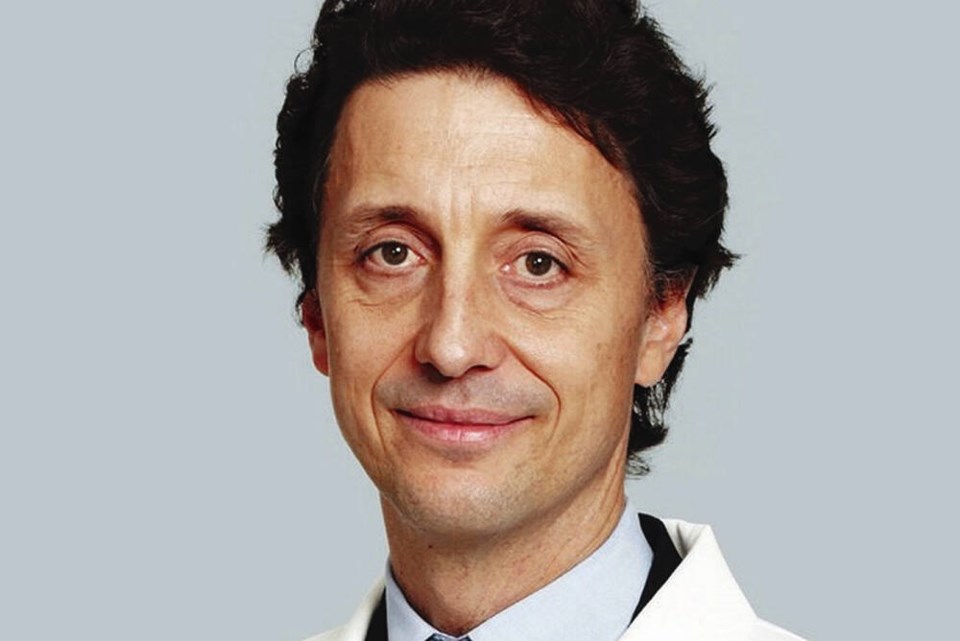Dear Dr. Roach: I am a reasonably healthy 80-year-old man who is fortunate enough to have a partner of a child-bearing age. She would like to bear us a child. I am concerned about any potential problems with my old genes and any birth defects that might be caused by them. Please help us decide.
R.B.
This is a question I hear from my patients, but usually when they are in their 60s or 70s. Eighty is quite old to be considering fathering a child.
The first issue is that men get less fertile as we age. Older men are less likely to get their partners pregnant, and this difference is apparent by the age of 35. There are not good data for potential fathers in their 80s.
If you and your partner do have a successful pregnancy, there is an increased risk of deleterious genetic conditions and birth defects that are more likely in children who have older fathers. Down syndrome, normally associated with an advanced maternal age, is also more common among the offspring of older fathers. Some heart conditions (septal defects, or a “hole in the heart”) are more common. Epilepsy and schizophrenia are more common as well, as are autism spectrum disorders.
Some cancer rates are increased. Babies are more likely to have a low birth weight, be born premature, and require the neonatal ICU. However, the magnitude of the effect is modest. On average, 1 in 50 pregnancies with a father under the age of 30 will have one of the common health conditions that are studied in couples. With children who have a father over 50, the rate is 1 in 38.
Even though the odds are that you would have a healthy child, the likelihood of a significant health issue for a man over 80 will be substantially more concerning. There just aren’t data for men as old as you are that can give you a reliable estimate.
Another issue to consider is whether you will be around to see your child grow up and be there as a father. The average 80-year-old man has a life expectancy of just under eight years. If you are substantially healthier than average, or if your parents lived a very long time, this number could be a bit better. But the average 80-year-old (assuming your partner has the child while you are still 80) is not likely to see their child reach their 10th birthday. The early death of a father has a negative impact on the physical and mental health of a child.
I conclude that there are significant risks with bringing a child into the world at your age.
Dear Dr. Roach: I got my first dose of Shingrix in 2022 and forgot to get the second. Do I need to get two more doses now or just one?
L.B.S.
According to the Advisory Committee on Immunization Practices, the vaccine series does not need to be restarted, and you can just take the second dose. However, this type of delayed administration hasn’t been thoroughly tested. I’ve had patients come back several years after the first dose who elect to redo the whole series just to be sure.
Dr. Roach regrets that he is unable to answer individual letters, but will incorporate them in the column whenever possible. Readers may email questions to [email protected]



